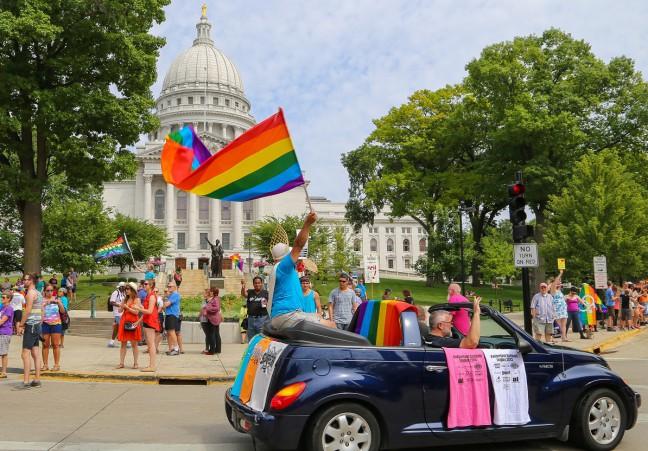After several high-profile cases of violence against the transgender community, University of Wisconsin’s Ten Percent Society is increasing awareness of the “T” in LGBTQ (lesbian, gay, bisexual, transgender and queer).
Following a string of three attempted and committed transgender suicides across the world, and suicide notes appearing on Tumblr, UW’s TPS chapter decided now is the time to step up efforts for activism.
“One of our group members, Hannah Bauman, expressed anger and frustration at recent suicides in the transgender community,” TPS spokesperson Corey Sprinkel said. “We took that moment and transformed it into one of activism and community involvement.”
In an email sent to organization members on Feb. 21, organization leaders recognized the suicide of 15-year-old Zander Mahaffey as a call to action. In the email, TPS leaders called for collective efforts “to help [them] become more than just a social org.”
Sprinkel said TPS hopes to educate the campus and community about LGBTQ issues with a specific focus on trans issues.
According to their website, the organization has traditionally served a social role since its founding on campus in 1983, providing a safe space for members of the LGBTQ community through a variety of social events. Sprinkel said TPS also provides a time to counsel students dealing with issues such as coming out. He said in recent years the organization has seen sizable member turnout, with an average of 25 students attending each meeting.
Sprinkel said, however, that there is a low turnout of transgender students in TPS, which is another reason for the group’s focus on transgender issues. He said TPS aims to let the campus know they are an all-inclusive group that wants to make transgender experiences more widely known on campus. Even though UW is generally accepting of LGBTQ students, he said, there are still improvements to make.
Got Equality? Madison was ranked one of the top cities in country for LGBT rights
“Campus is pretty open and accepting, but I think gender is an issue less understood in terms of trans individuals and gender fluidity,” Sprinkel said. “We want to help the campus community become more aware of the other identities within the spectrum of LGBTQ.”
Gabe Javier, assistant dean of students and director of the UW LGBT Campus Center, said the climate for LGBTQ people continuously changes. He said the UW administration has traditionally been supportive of sexual minorities, although the campus still faces hurdles to eliminate gender bias, homophobia and transphobia. Additionally, he said the university and student body must work toward strengthening ties between the LGBTQ and wider campus community.
Specifically for transgender individuals, he said the university is working to implement access to all gender bathrooms and to introduce a preferred name process.
“We are all responsible for increasing our cultural competence and dialoguing across different [communities],” Javier said. “Part of it is recognizing our own privilege.”
Often, he said, students have a lack of understanding related to gender identity and expression, and that gender expression exists across a spectrum. To improve the campus community, he said students should think about what it means to be an ally especially to the trans community by self educating and participating in LGBTQ events.














